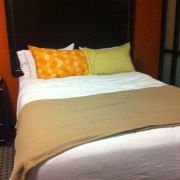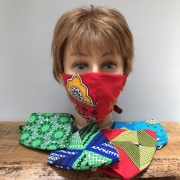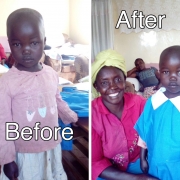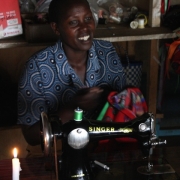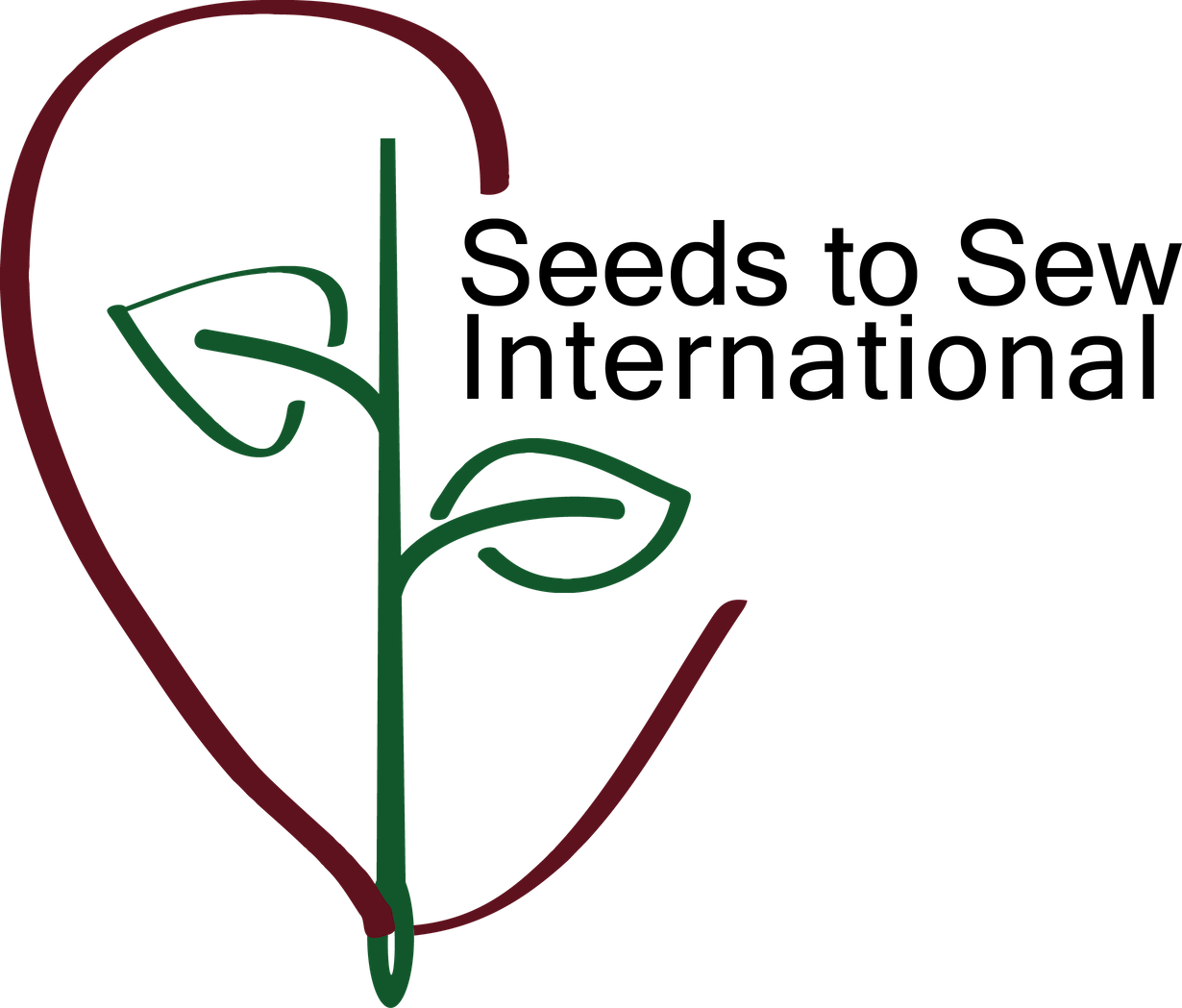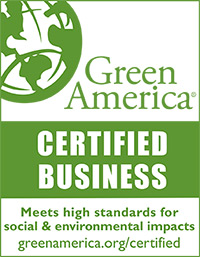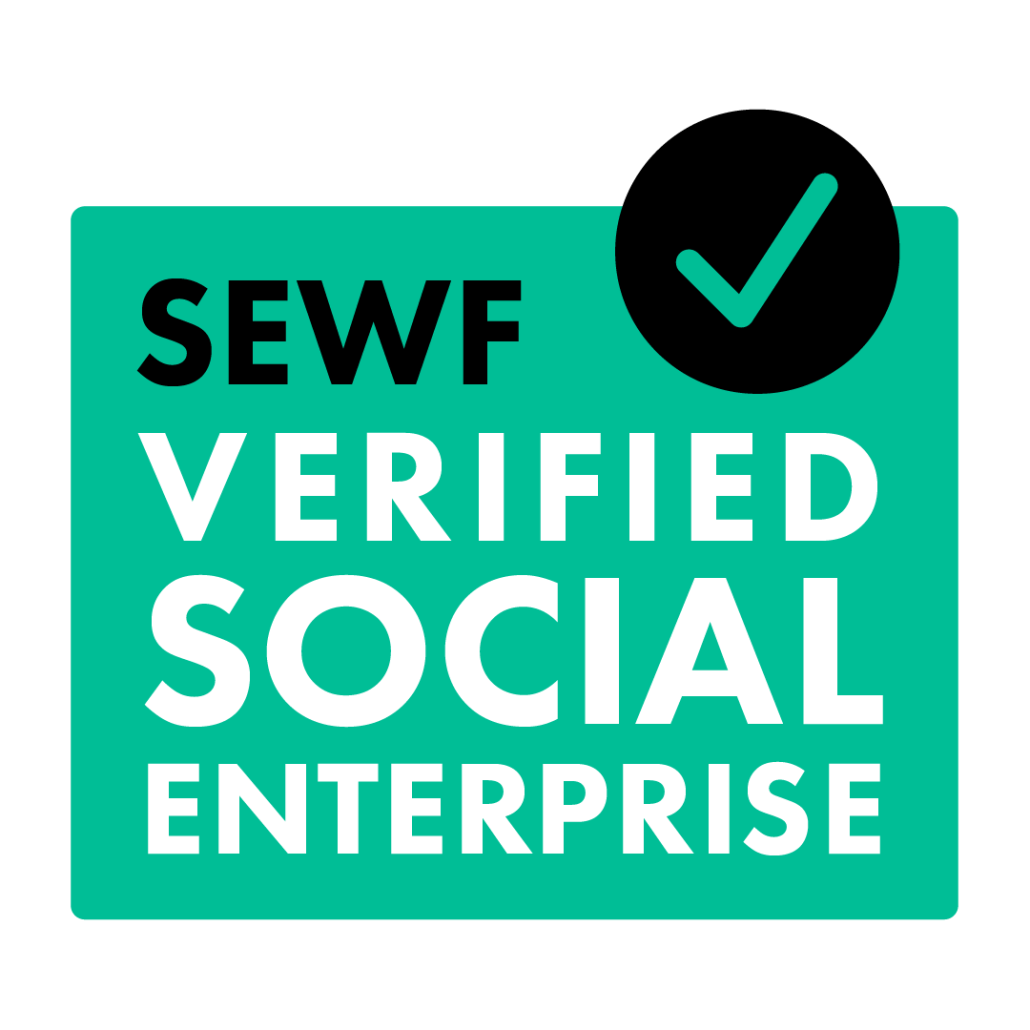By Eliza Rosenthale for Seeds to Sew International
February 26, 2018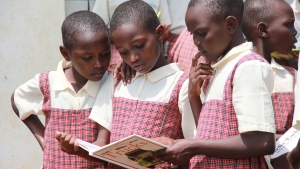
Enkisoma means “education” in the Maasai language. In Kenya, especially in rural, impoverished areas, education is often seen as wasted on a girl. In Maasai culture, a girl’s value is based on the material wealth that comes with her marriage-dowry: cows or the work that she can provide around the farm.
Avoiding FGM/C
Often, these girls are rejected from their families or denied an education if they refuse FGM/C or girl-child marriage. FGM/C stands for female genital mutilation, or cutting. In addition to being deprived of basic rights and not having as much access as men to land, education, and employment, this is another horrible way that women in Kenya are abused. It is a fundamental violation of the rights of girls and is typically upheld by deeply entrenched social norms.[1]
More than 130 million women have experienced this brutal tradition worldwide. It is seen as a rite of passage to signal that a girl has now become a woman. The purpose is to reduce the sexual desire of girls and women, enhance a man’s sexual pleasure, make girls and women “clean”, or keep the cultural identity of a community. FGM/C is seen as a preparation for girls before marriage, and there is a link between FGM/C and child marriage. It is believed that FGM/C ensures a girl’s virginity, and may make men more willing to marry her and pay a higher bride price for her. FGM/C provides circumcisers with a source of income. In some communities traditional leaders and chiefs are paid to give permission for girls to be cut.[2]
The parents of the young girls will pay a lot of money for FGM/C to be performed on their daughters, and half of that money goes to a clan of elders which is an exclusively male group. This group also gets to decide on cultural events and traditions, and decides when the “cutting season” takes place in order to boost their annual income.[3] Thankfully, FGM/C was made illegal in Kenya with the Prohibition of Female Genital Mutilation Act of 2011. An adolescent girl today is about a third less likely to be cut than 30 years ago.[4] Many of the local and international organizations working to eradicate FGM/C in Kenya agree that the new laws are a great step forward. However, FGM/C continues to be practiced widely, especially in the rural areas.[5]
Seeds to Sew International is Helping Girls to Stay in School
Seeds to Sew allows Kenyan women and girls to become independent when their families or other males in their lives reject or abuse them. The organization empowers women and girls with the opportunity to learn basic sewing, beading, and business skills in order to generate income that can pay for their needs, such as education.
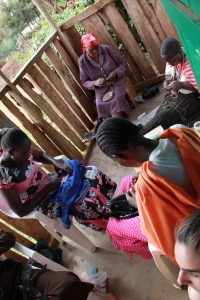 The Enkisoma program is one program that Seeds to Sew offers for women in Enoosaen, a subsistence farming Maasai village in rural Kenya. In this program, women and girls focus on their beading skills to make traditional Maasai beaded bracelets. They bead this jewelry to raise money for school-related expenses, whether for themselves, their daughters, or nieces.
The Enkisoma program is one program that Seeds to Sew offers for women in Enoosaen, a subsistence farming Maasai village in rural Kenya. In this program, women and girls focus on their beading skills to make traditional Maasai beaded bracelets. They bead this jewelry to raise money for school-related expenses, whether for themselves, their daughters, or nieces.
Seeds to Sew also educates participants about their basic human rights, so that they can advocate for themselves and find support when needed. Seeds to Sew builds the market in the US and facilitates the sale of beaded jewelry to fund school fees directly.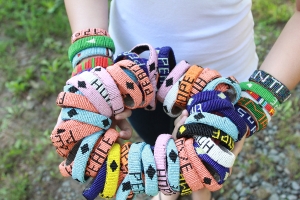
Not only are the bracelets helping those in need, but they are environmentally friendly! Each bracelet is made of repurposed rubber that has been found on the side of the road, such as blown up tires or rain boots. Therefore, they are upcycled. Strips are cut with a razor, then beading is done around it, and lastly the ends are sewn together to make a seamless bracelet. They are vegan, and a great alternative to products made out of leather.
Every bracelet is unique and all the designs are their traditional Maasai designs. Some of the bracelets have words beaded on them, such as HOPE, LOVE, PEACE, ANTI FGM, EDUCATION or ENKISOMA.
Agnes and the Enkisoma beading program
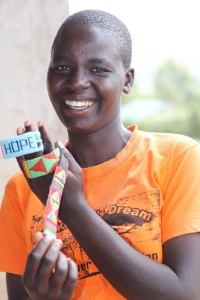
Agnes in 2011
The Enkisoma beading program was inspired by a Maasai girl, Agnes Netaya Kimpuk. In April 2011, an Advocacy Project Peace Fellow, Charlotte Bourdillon, was placed at the Kakenya Centre for Excellence. She undertook a project around the Enoosaen community, which is in the Transmara district of Kenya. Charlotte profiled people who were making waves in one way or another in the fight against female genital mutilation/cutting and early marriages.
Agnes Nteya Kimpuk was one such person who fit this profile: Agnes is bright and ambitious about her education, but shackled by tradition and a family that does not support her desire to continue her education. Her choice to refuse FGM/C has caused her father to reject and neglect her entirely, refusing to pay her school fees, treating her as less valuable than her circumcised sisters. She was only 14 when she was disowned from her family.
This is not just Agnes’ story. In the Maasai community in Enoosaen, Kenya, there are innumerable iterations of Agnes’ story. These girls generally have few, if any, places to go for support when they are outcast by their family because they refuse to be married and/or undergo FGM/C. Many girls hope that if they run away from home, they will be able to find some way to continue to attend school.
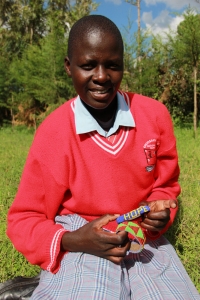
Agnes in 2013 – in her new high school uniform
When Seeds to Sew representatives first arrived to Enoosaen in summer 2011 to implement their flagship sewing program, Agnes and Charlotte approached them with the idea of selling Agnes’ bracelets as a way to help her pay for high school that she so desperately wanted to attend. Seeds to Sew representatives liked the idea. She began beading to pay for high school fees in 2011, and graduated high school in 2015 along with 2 more girls in the Enkisoma program.
Last year, 3 girls graduated and there are currently 16 girls and their mothers and aunts who are making bracelets and other jewelry in the traditional Maasai style. This is all for the purpose of trying to keep the girls in their community in school. All proceeds pay for school tuition and school related expenses outright. The program has since grown, and as of now, 25 girls in the Enoosaen community beaded wristbands and necklaces in the traditional Maasai style and have been funding their own education through the Enkisoma program.
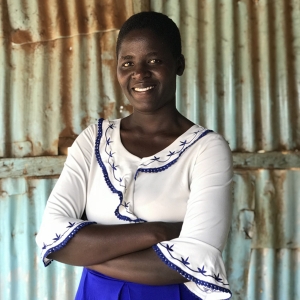
Agnes in 2018
Agnes’ entire secondary schooling was financed through the Enkisoma program. She finished secondary school and remained at home for two years because her father is still not supporting her and her mother is very ill. Her family could not afford to send her to university. But with the help of Seeds to Sew, Agnes applied to Kenyatta University in Nairobi and was accepted! As her mother is ill and her father still doesn’t support her, her tuition, lodging, travel and food expenses are being covered by generous supporters of Seeds to Sew.
After graduating high school, she gave birth to a baby girl. She wants her daughter to have a better start of life than she did, and hopes that she does not experience the same difficulties.
Agnes says, “All my life I have yearned to be a blessing to my society. Seeing children sit back at home to undertake household chores and grazing cattle instead of getting an education is quite disheartening. My great aspiration has been to be a teacher, I want to impart knowledge to the learners, I want to serve humanity in teaching capacity. How can I do this? How can I achieve my goals when I lack fee to facilitate the same? When I lack rent and food? I’m glad that through the help of generous people like you and Seeds to Sew this is now imaginable.”
One girl at a time
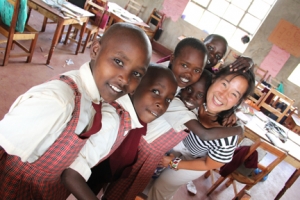
Seeds to Sew founder and director, Ellyn Ito, with girls from Kakenya Center for Excellence, one of the schools that some of the girls attend
To the girls in the Enkisoma program, the bracelets represent an opportunity for them to gain control of their own lives. Through the education and stability that the funds from the bracelets provide, the girls can take on completely new roles in their communities.
Enkisoma means education, and this education leads to an independence that the girls would not likely have been able to obtain without the program. When you wear an Enkisoma bracelet, it will serve as a reminder that not everyone in the world has easy access to the freedom and opportunities that you may take for granted. But it will also serve as a symbol of hope for the women and girls in Kenya who are receiving an education.
Let your Enkisoma bracelet always be a reminder that you were part of the process of supporting marginalized and disadvantaged people in our world.
One bracelet at a time
The bracelets make the perfect gift for a friend, family member, recent graduate, or someone in your life that things come easily to and who would like a reminder of just how big a difference something as small as a bracelet can make in someone’s life. They can be a bonding symbol between two people as a friendship bracelet, or a pay-it-forward as a meaningful gift. The Enkisoma bracelet doubles as a gift with a purpose.
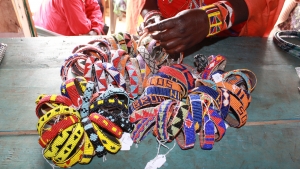 In addition to being a symbol of hope, progress, and empowerment, the bracelets can serve many purposes. If you are having an event, the bracelets can serve as unique party favors.
In addition to being a symbol of hope, progress, and empowerment, the bracelets can serve many purposes. If you are having an event, the bracelets can serve as unique party favors.
- Birthday
- Wedding shower
- Baby shower
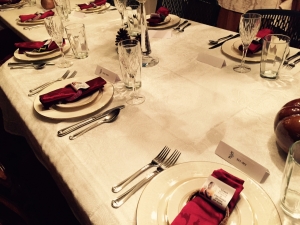
Enkisoma bracelets used as napkin rings at a festive dinner table
The can even be used as
- ornaments
- key-chain rings, just attach a metal split key ring and you’re all set.
- napkin rings for your dinner guests
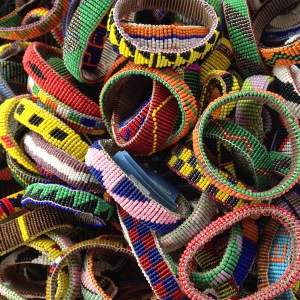 They can be gifted on any occasion
They can be gifted on any occasion
- Graduation
- Mother’s Day
- Father’s Day
- Birthday
Stop by the Seeds to Sew shop on Seminary Avenue, or to Friends Salon in Hopewell, NJ to get a unique Enkisoma bracelet. You can also pick one out at scheduled events, on the Seeds to Sew website (seedstosew.org), Etsy, or Amazon. Contact Seeds to Sew to learn how to sell them for a joint fundraiser.
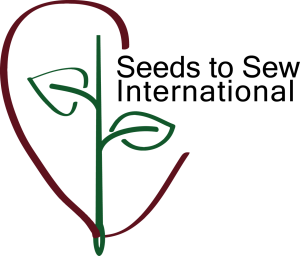 Seeds to Sew International, Inc. is a member of the Fair Trade Federation, US-based, 501(c)3, non-profit organization with the mission of improving the lives of women and girls in disadvantaged communitiesthrough education and job skills training. Our goal is for the women and girls in our programs to use these job skills to earn money and to support themselves and their communities. We educate participants about local laws, their basic rights and the rights of their children so that they can advocate for themselves as their income and stature in their community grows. Here in America, we are actively involved with schools and universities to raise awareness about the challenges that women and girls face in the developing countries and how our choices here at home impact communities a world away. We are also continuing to develop the market for the products our participants make as a way to provide income, pay for school fees and provide seed funding for their future initiatives. To find out more, visit www.seedstosew.org.
Seeds to Sew International, Inc. is a member of the Fair Trade Federation, US-based, 501(c)3, non-profit organization with the mission of improving the lives of women and girls in disadvantaged communitiesthrough education and job skills training. Our goal is for the women and girls in our programs to use these job skills to earn money and to support themselves and their communities. We educate participants about local laws, their basic rights and the rights of their children so that they can advocate for themselves as their income and stature in their community grows. Here in America, we are actively involved with schools and universities to raise awareness about the challenges that women and girls face in the developing countries and how our choices here at home impact communities a world away. We are also continuing to develop the market for the products our participants make as a way to provide income, pay for school fees and provide seed funding for their future initiatives. To find out more, visit www.seedstosew.org.

The Fair Trade Federation is the trade association that strengthens and promotes North American organizations fully committed to fair trade. The Federation is part of the global fair trade movement, building equitable and sustainable trading partnerships and creating opportunities to alleviate poverty. To find out more, visit www.fairtradefederation.org/
[1]“Female Genital Mutilation/Cutting.” UNICEF, 26 Feb. 2016, www.unicef.org/protection/57929_58002.html.
[2]“Anti-FGM Law.” ANTI-FGM BOARD, antifgmboard.go.ke/anti-fgm-law-history/.
[3] Hub, Women & Girls. “Kenyan Clan Elders Are Profiting Off Female Genital Mutilation.” The Huffington Post, TheHuffingtonPost.com, 12 Dec. 2016, www.huffingtonpost.com/entry/kenyan-clan-elders-are-profiting-off-female-genital-mutilation_us_584ec02ee4b0bd9c3dfd8816.
[4]“Female Genital Mutilation/Cutting.” UNICEF, 26 Feb. 2016, www.unicef.org/protection/57929_58002.html.
[5]“Law and FGM in Kenya.” Make Every Woman Count Blog Law and FGM in Kenya Comments, www.blog.makeeverywomancount.org/law-and-fgm-in-kenya/.

